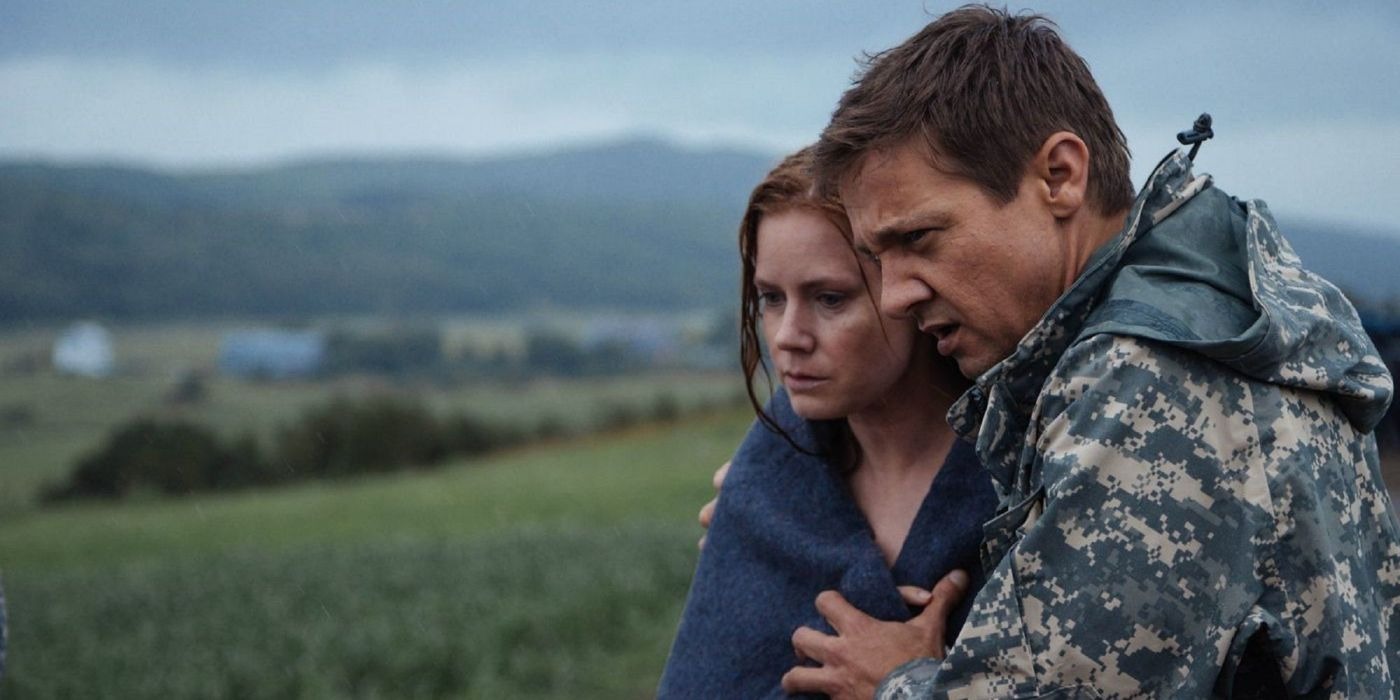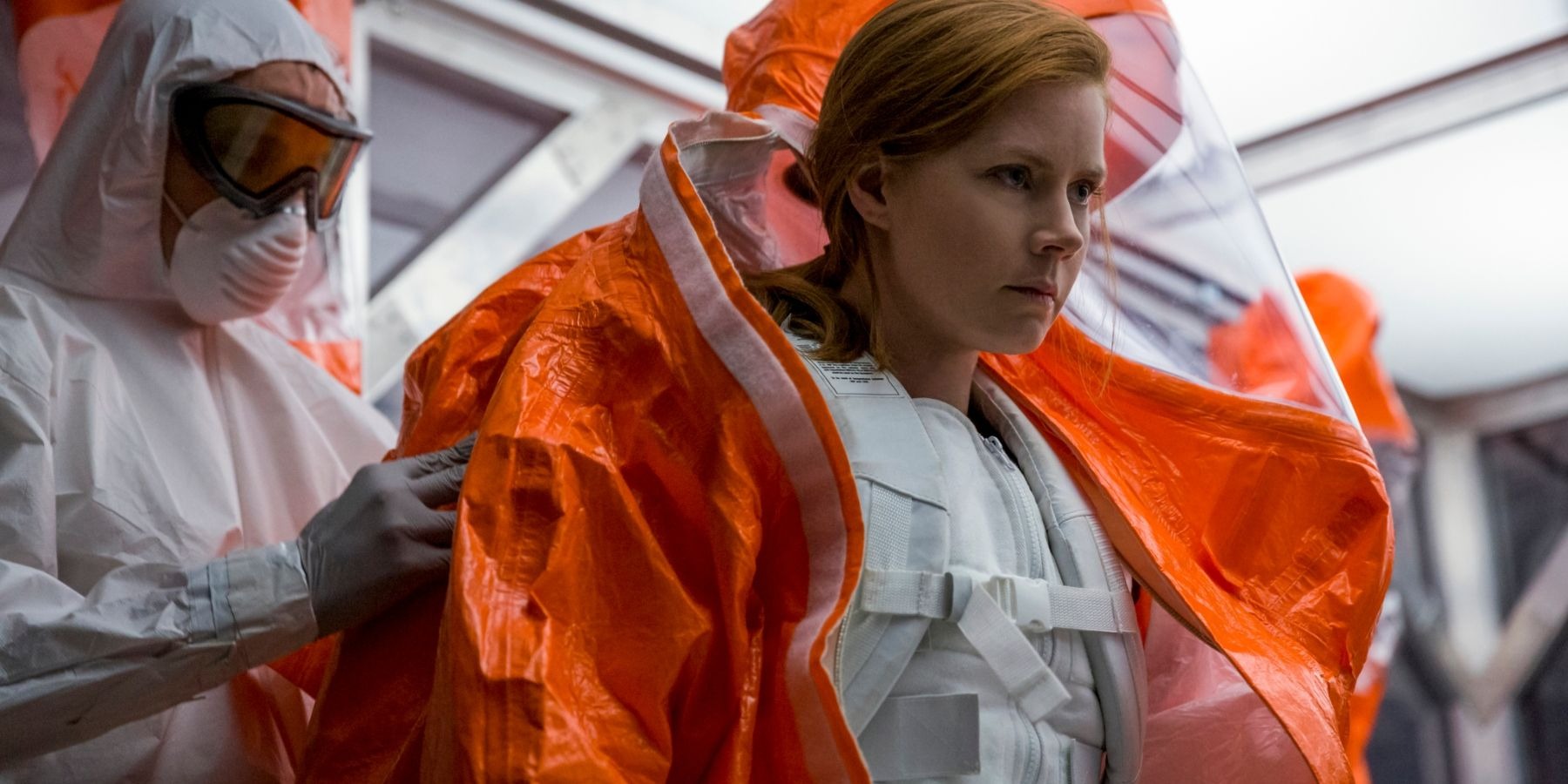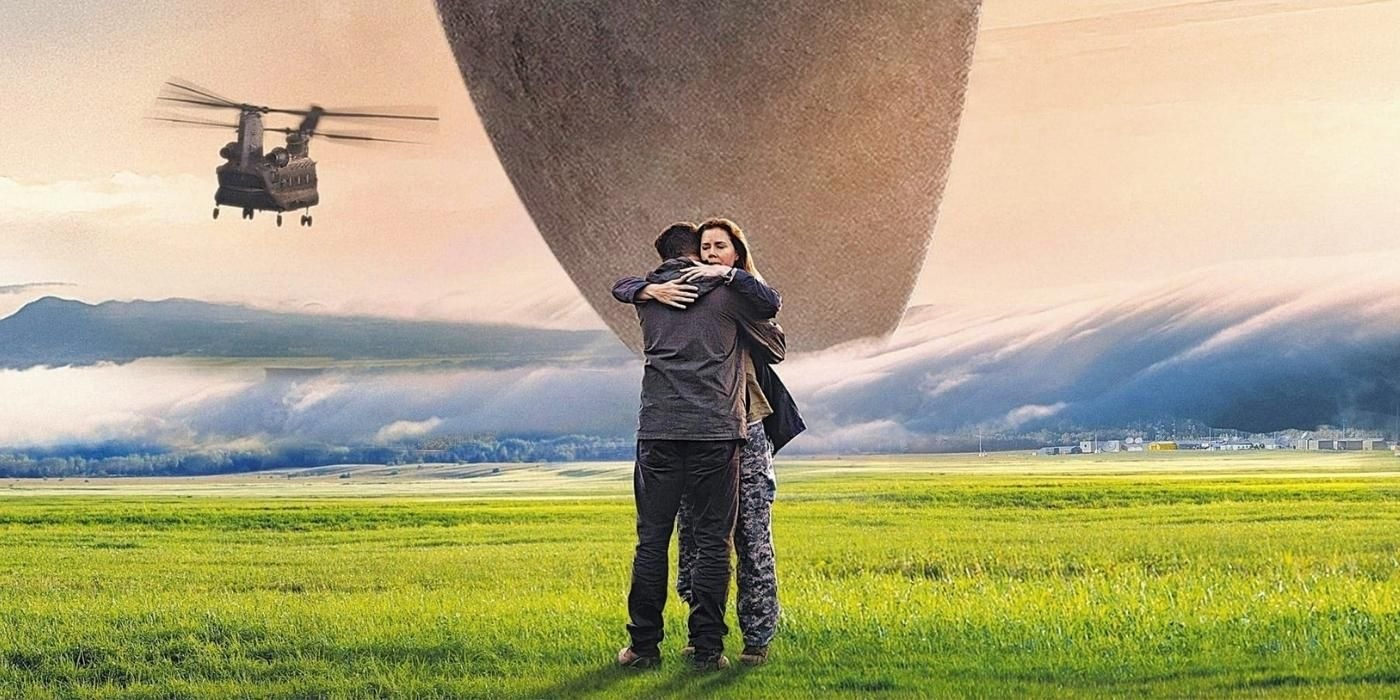Denis Villeneuve’s impressive streak in science fiction continues with Arrival, which stands out as one of the finest films in the genre from the 20th century, thanks in part to its astonishing conclusion.
Before he went into the expansive realms of sci-fi with Blade Runner 2049 and Dune, Villeneuve crafted Arrival, a film that intricately explores the human response to extraterrestrial visitors rather than the aliens themselves.
Central to the story is a humble linguistics professor who embarks on a mission to avert a third World War fueled by fear and uncertainty. Villeneuve’s knack for subverting audience expectations and manipulating the perception of time is vividly demonstrated in Arrival’s compelling finale, which poses profound questions that resonate long after the credits roll.

What Is Denis Villeneuve’s ‘Arrival’ About?
To fully grasp the conclusion of Arrival, it’s essential to examine its beginning. The film intriguingly commences at its end, showcasing the poignant relationship between linguistics professor Louise Banks (Amy Adams) and her daughter Hannah at different ages: 6 (Jadyn Malone), 8 (Abigail Pniowsky), and 12 (Julia Scarlett Dan).
This segment presents a bittersweet portrayal of a happy family life that is abruptly shattered by tragedy. When Hannah passes away from a terminal illness at 12, Louise is left in a state of profound grief.
Following this emotional introduction, viewers find Louise preparing to deliver a lecture in her linguistics class to a sparse audience. Her lesson is interrupted by breaking news about unidentified flying objects.
Shortly thereafter, Colonel Weber from the United States military contacts Louise, informing her that she and physicist Ian Donnelly (Jeremy Renner) are being summoned to one of the alien landing sites to facilitate communication with the extraterrestrial beings inside.
Clad in hazmat suits, Louise and her team enter the vessel, finding themselves in a dark room separated by glass. They notice movement behind the glass but struggle to establish communication.
Louise defies government protocols, removes her hazmat suit, and places her hand on the glass, prompting a colossal tentacle to strike it, seemingly attempting to mirror her gesture.
The team discovers two extraterrestrial beings behind the glass, which Ian nicknames Abbott and Costello, drawing inspiration from the famed comedic duo.
While these entities are intelligent, the term “appear” is critical here. Louise desires to maintain peaceful communication efforts, yet skepticism from various countries leads some to consider more aggressive responses.
What Is the Twist in ‘Arrival’?
As Louise engages further with Abbott and Costello, she experiences vivid flashbacks of her time with Hannah. These peace negotiations seem to stall, and another visit to the ship turns chaotic.
During this trip, soldiers tasked with guarding the vessel go rogue, planting explosives on the platform. Abbott manages to save Louise and Ian but sacrifices himself in the process.
With global tensions escalating, particularly from China, which threatens to instigate conflict, Louise races to the ship to uncover the aliens’ intentions. When she finally confronts Costello, she asks, “Who is this child?” alluding to her visions of Hannah.

How can Louise be unaware of her daughter? Costello, in his unique manner, reveals the purpose of his and Abbott’s arrival on Earth: they have granted Louise the ability to perceive time, enabling her to glimpse the future.
The images of Hannah that have haunted her throughout the film are not memories but prophetic visions. Hannah is not a daughter from the past but a child Louise is destined to have with Ian. By sharing these glimpses of their life and Hannah’s eventual death, Costello aims to assist Louise in coping with the grief she will face.
Equipped with this new understanding, Louise envisions an impending encounter with Chinese General Shang (Tzi Ma). They share a brief exchange in which she prevents him from declaring war by relaying the last words of his deceased wife.
Armed with this knowledge, she reaches out to the general, successfully orchestrating a global ceasefire. With the threat of a third World War averted, Costello and the other aliens depart Earth, leaving Louise to sail through her future.
Will ‘Arrival’ Ever Get a Sequel?
Having grasped the communication goals of Abbott and Costello, it’s crucial to consider their ultimate reason for visiting Earth. In their final conversation, Costello reveals they sought human allies for a conflict projected to occur in 3,000 years.
Although the precise nature of the aliens’ needs remains a mystery, this implies that humanity’s interactions with these extraterrestrial beings are far from over. As for a potential sequel to Arrival, no official announcements have been made, and the film’s self-contained narrative doesn’t necessarily demand one.
Nevertheless, Arrival proved to be a box office success, generating $200 million from a budget of less than $50 million, so a sequel wouldn’t be unexpected. Ultimately, whether Denis Villeneuve would choose to revisit this universe remains uncertain.



